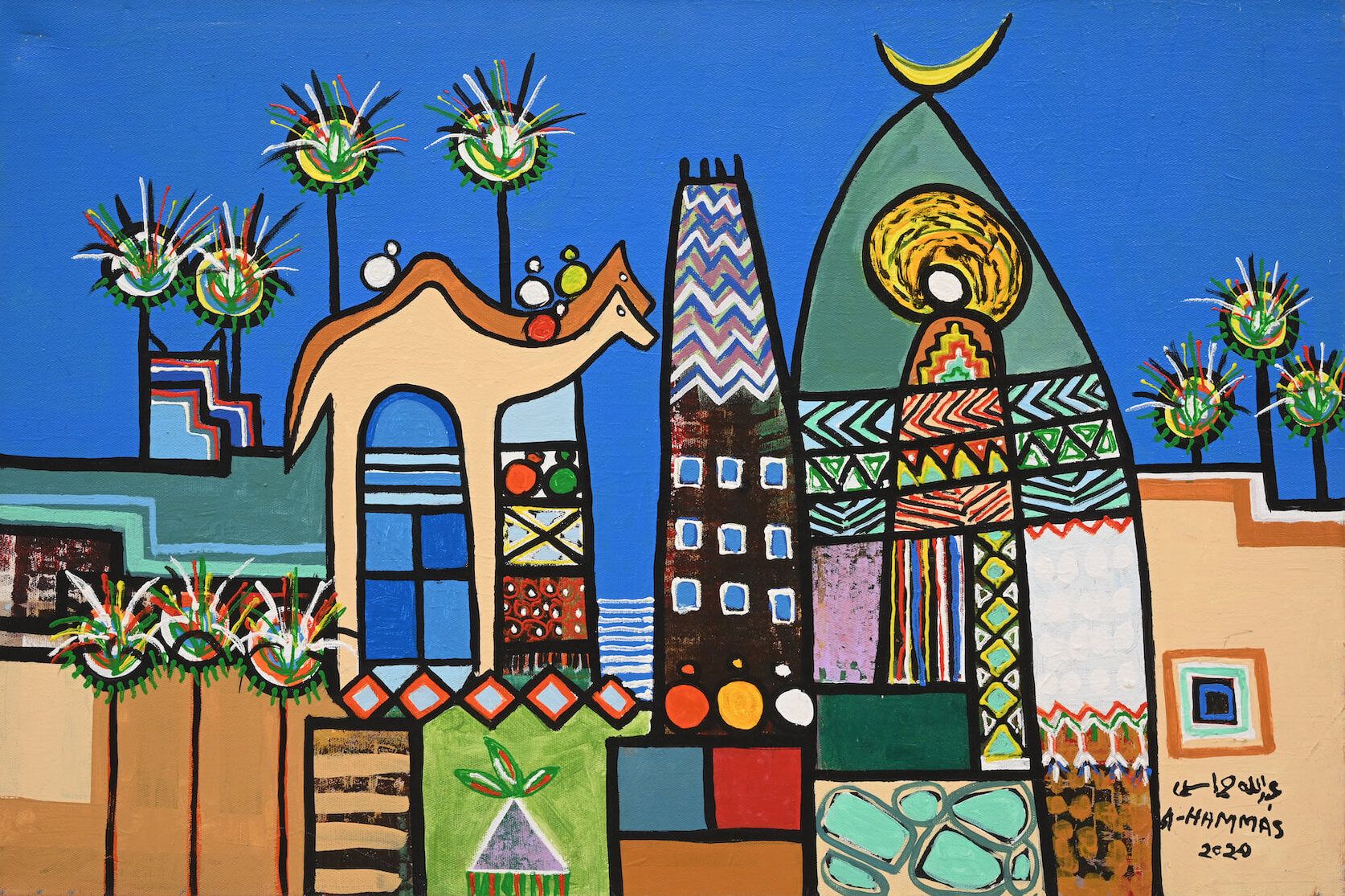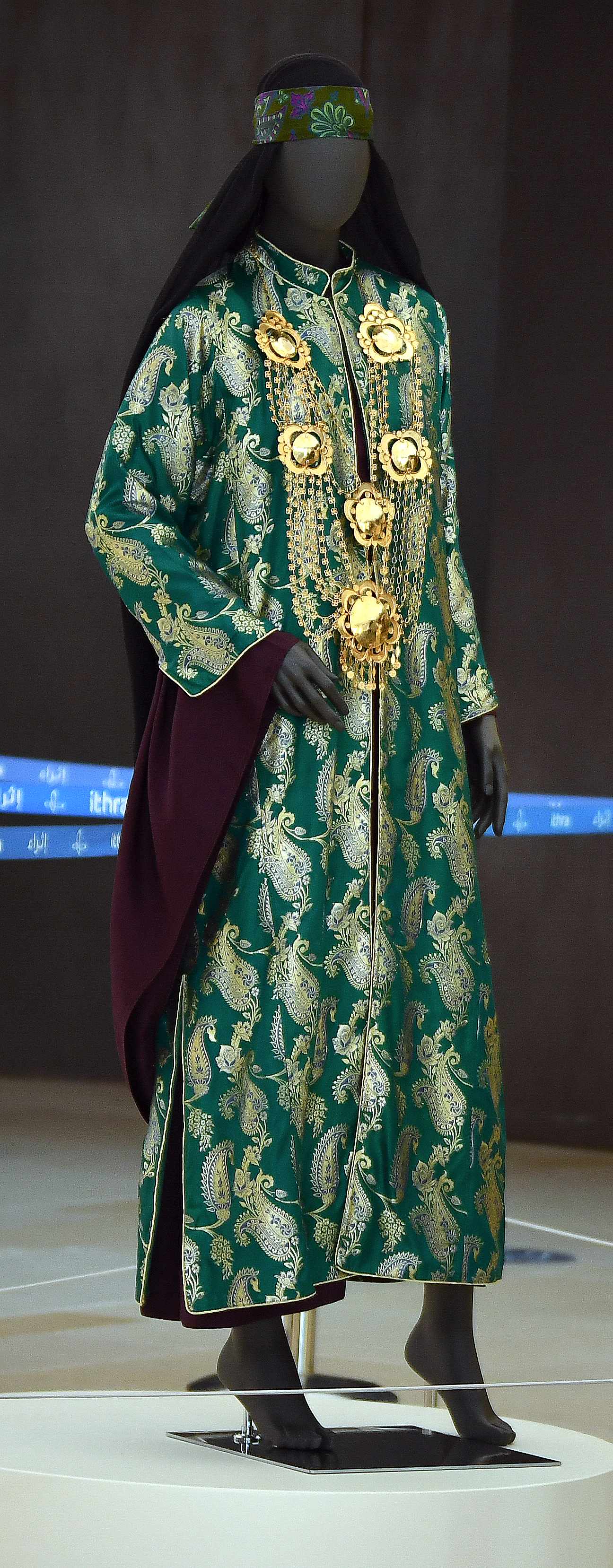Heritage Mirrors Civilizations
Traditional Saudi clothes in a traditional home setting - Al Qatt Al Asiri visible in the back. Courtesy of Heritage Commission, Ministry of Culture.
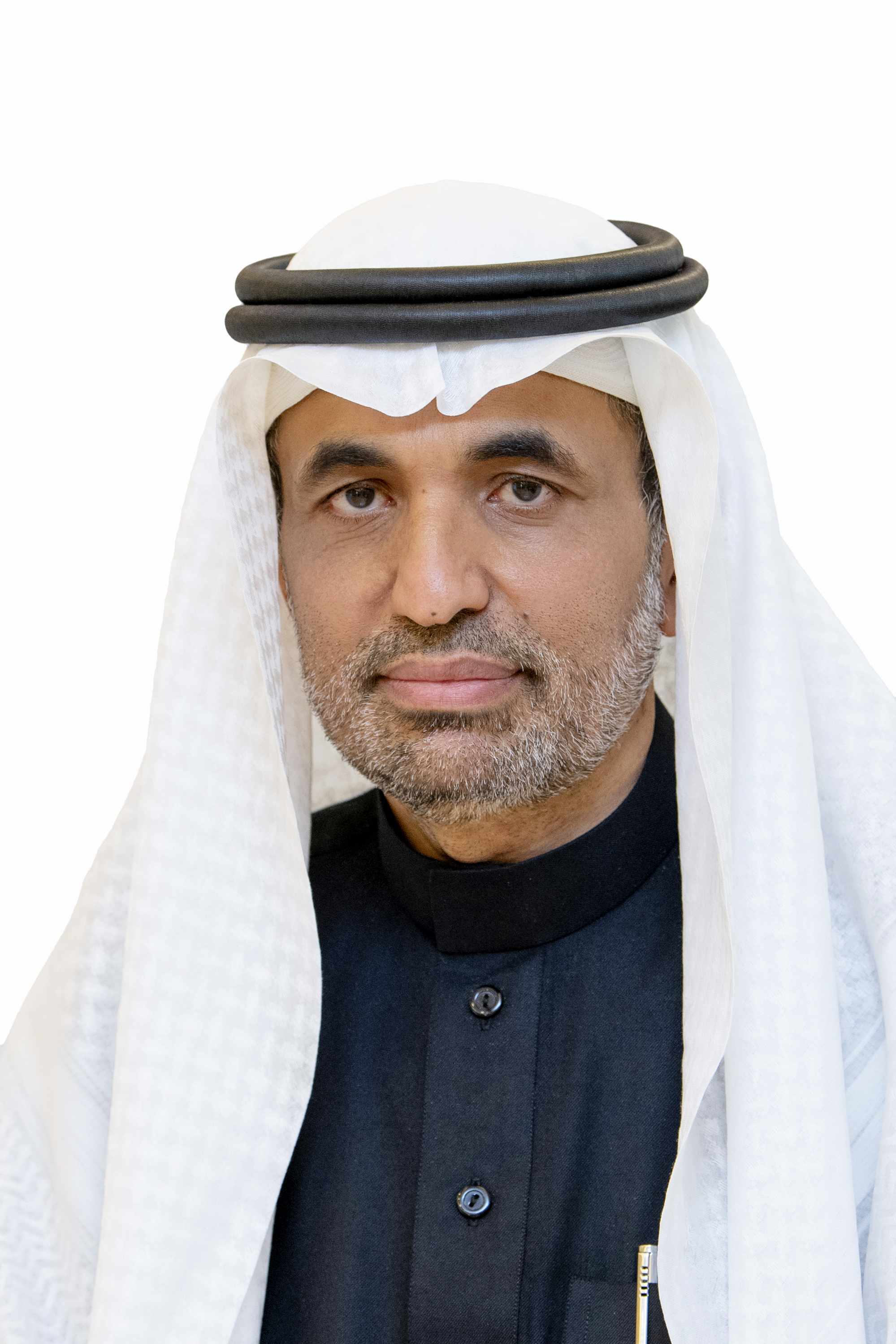
Dr. Jasir Alherbish, CEO of the Heritage Commission
Heritage encompasses multiple facets and doesn't revolve around just tangible, material aspects. Alongside handicrafts and folk practices, it also includes customs and traditions.
Saudi Arabia is rich in heritage, with groups and enthusiasts dedicated to preserving it. This makes it fertile ground for employing national heritage not just as a cultural product but also as an economic asset contributing to the national GDP and creating more job opportunities.
The role of Saudi Arabia’s Heritage Commission is to serve, preserve, and develop the national heritage in accordance with the best global practices, given its symbolic significance to civilization and national identity. Furthermore, it involves efforts to raise social awareness about the importance of caring for and nurturing heritage. The Heritage Commission acts as the gateway through which the heritage sector is introduced, encouraging the community to develop, rehabilitate, and benefit from it. It operates with stakeholders and activists in the field, including individuals and institutions across various regions of the Kingdom.
Dr.Jasir Alherbish holds extensive experience in the domain of Saudi crafts and culture. He has overseen the National Program for Crafts and Handicraft Industries, served as Deputy Minister for Missions at the Ministry of Education, and acted as the General Supervisor of Saudi Cultural Attachés. He also held the position of CEO of the Saudi Commission for Tourism and National Heritage in Qassim before assuming his current role as CEO of the Heritage Commission. His current focus is on effectively developing the Kingdom's heritage properties and promoting research activities related to national heritage.
Ithraeyat has the honor of an exclusive interview with Dr Alherbish and learning more about the importance of heritage in its various forms.
The term "intangible cultural heritage" refers to practices, perceptions, forms of expression, knowledge, and skills - along with the related tools, objects, and cultural sites - that communities and sometimes individuals consider as part of their cultural heritage. This inherited intangible cultural heritage, passed down from generation to generation, is continuously reinvented by communities and groups in harmony with their environment and interactions with nature and history. It cultivates their sense of identity and the feeling of continuity, thereby enhancing respect for cultural diversity and human creative capacity.
It is important because it helps preserve the cultural identity of communities and promote diversity and intercultural dialogue. Intangible cultural heritage also provides a sense of community and helps to promote mutual understanding, respect and dialogue.
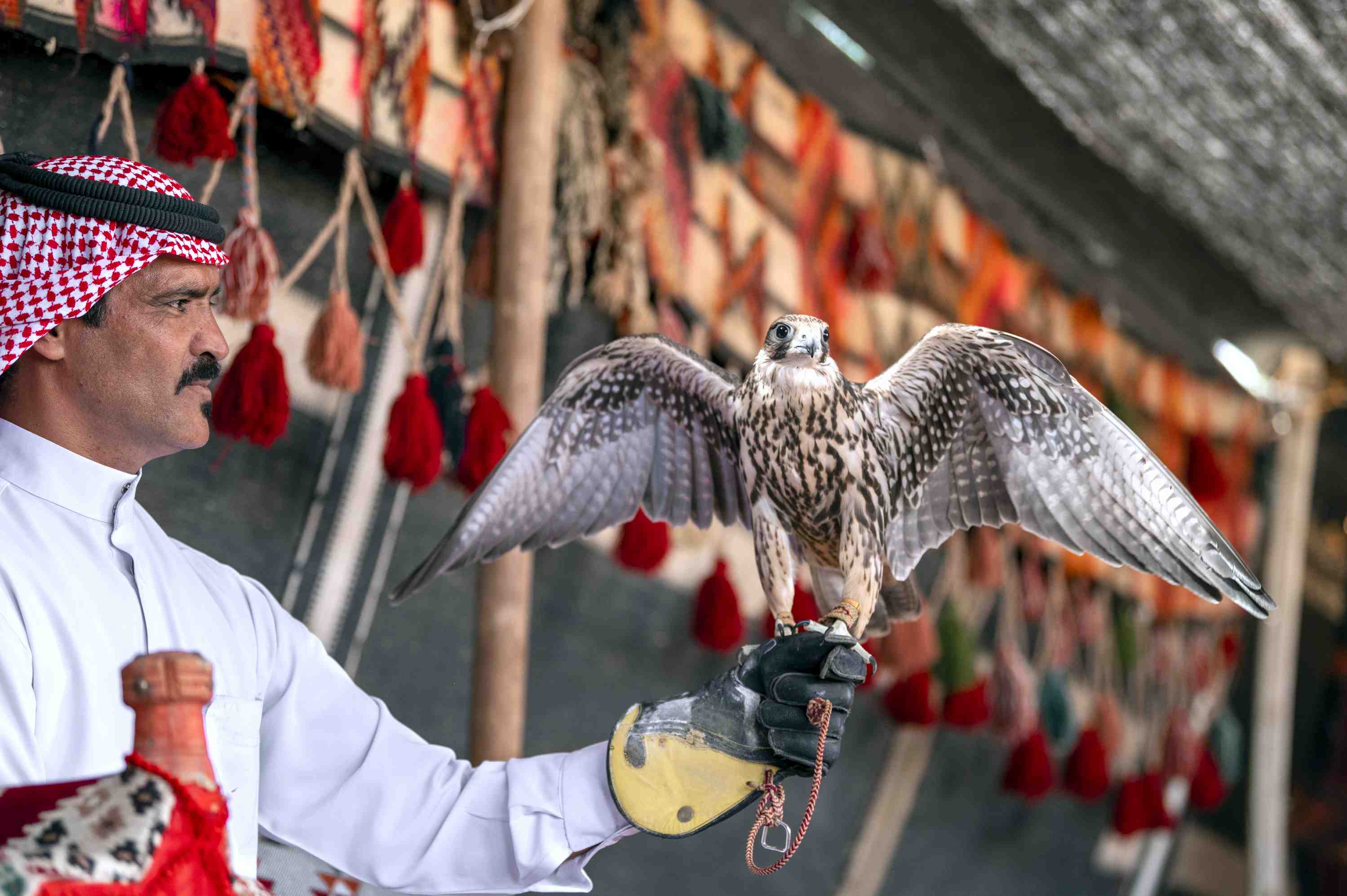
Courtesy of Heritage Commission, Ministry of Culture.
All elements of the (intangible cultural heritage) practised by local communities hold significant importance for us. Within the Heritage Commission we focus on cataloguing and documenting all aspects of intangible heritage through field projects dedicated to inventorying and documentation. Furthermore, we strive to promote and enrich these elements through cultural heritage activities and events. Additionally, we place intensive care on elements facing the threat of extinction, employing preservation and protection programs overseen by the General Directorate for Intangible Heritage at the Heritage Commission.
The Kingdom has gained global recognition in the field of intangible heritage by registering 11 elements on UNESCO's Representative List of the Intangible Cultural Heritage. These include the palm tree, the Majlis, Arabic coffee, Al-Sadu (traditional weaving), the Saudi Ardha (traditional dance), Saudi Arabian Khawlani coffee, and camel herding. The Kingdom has been acknowledged for its exemplary leadership, notably in UNESCO's recognition of the "Arabic Calligraphy" dossier, involving fifteen Arab countries. UNESCO deemed "Arabic Calligraphy" an outstanding and exemplary model of collaboration among multiple nations. Each year, the Heritage Authority actively nominates new elements for UNESCO's Representative List to safeguard intangible cultural heritage.
Courtesy of Heritage Commission, Ministry of Culture.
Absolutely. Since its inception in February 2020, the Heritage Commission has assumed the responsibility of organizing and developing the Kingdom's heritage sector. It aims to enhance and support its various facets, and has established a dedicated department to oversee the realm of intangible heritage within its organizational structure. This dedicated department in turn supports various aspects aimed at preserving the Kingdom's intangible heritage. One of its key ongoing projects for conserving and safeguarding intangible cultural heritage includes:
● Efforts are underway to prepare the periodic report for the 2003 Convention for the Safeguarding of the Intangible Cultural Heritage. Signatory countries commit to submitting this report to UNESCO every six years, assessing the overall status of intangible cultural heritage listed on UNESCO's Representative List. This report is a key requirement by UNESCO for the convention's member states. Workshops have been conducted, convening stakeholders in the Kingdom's intangible cultural heritage, to discuss preservation efforts. The Kingdom has been notably praised for its exemplary approach in preparing the periodic report. UNESCO has urged other nations to adopt and learn from the Kingdom's methodology showcased in this report.
● Hosting a workshop focused on capacity-building in documenting and cataloguing intangible heritage, targeted at culture affiliates and enthusiasts.
● The project of documenting and safeguarding traditional sports and folk games for collecting, cataloguing, and preserving them from disappearing. This preservation entails documenting these practices using the most advanced scientific, methodological, and artistic approaches. Traditional sports and games represent a fusion of culture, sports, inherited customs, and prevalent social traditions.
One of the most notable upcoming projects of the Heritage Commission, particularly through the General Directorate for Intangible Heritage, within the current and future endeavours to preserve intangible heritage, is:
● Submitting nominations for Saudi Arabia, either on a national or joint basis with other countries, to be listed on UNESCO's Intangible Cultural Heritage Lists.
● The (Registry) Project dedicated to the inventory and documentation of elements comprising intangible heritage. Its focal point lies in cataloguing the intangible cultural heritage throughout all regions and provinces of the Kingdom of Saudi Arabia. This initiative encompasses practices considered intrinsic to the cultural heritage, passed down through generations, nurturing and strengthening a profound sense of national identity within the community. Additionally, it fosters respect for cultural diversity and enhances creative capacities within society.
● A project aiming to construct an instructive handbook for stakeholders on engaging local communities in activities. The goal is to elevate sector performance, boost public awareness, disseminate heritage, establish suitable regulations and policies, issue licences, and offer facilitation to sector collaborators.
● The project 'Monitoring Intangible Maritime Heritage' aims to increase the percentage of the population with heightened awareness of national heritage. This endeavour will contribute to the activation of intangible cultural heritage and revitalization of the usage of sailing ships, as well as the activation of practices associated with intangible maritime heritage.
● A project to build a development plan with the goal of raising awareness about intangible heritage, executing a pioneering national awareness initiative. It will be the first of its kind, targeting employees of the Ministry of Culture, citizens, and residents across the Kingdom, aiming to enhance awareness and engage the local community in understanding, preserving, documenting, and promoting intangible cultural heritage.
Inspiring young people to learn and master intangible cultural heritage involves engaging them actively in its preservation and continuity. This includes their participation in cultural events, festivals, and educational programs focused on traditional crafts and industries. Furthermore, creating opportunities for youth to interact with older generations and learning from their wisdom and experiences serves as a powerful inspiration for their involvement. Additionally, providing incentives such as recognition, awards, and public acknowledgment for their contributions can effectively motivate them to participate in preserving and continuing intangible cultural heritage.
We express gratitude to Dr Alherbish for sharing his vision and wisdom in discussing our heritage and its future.
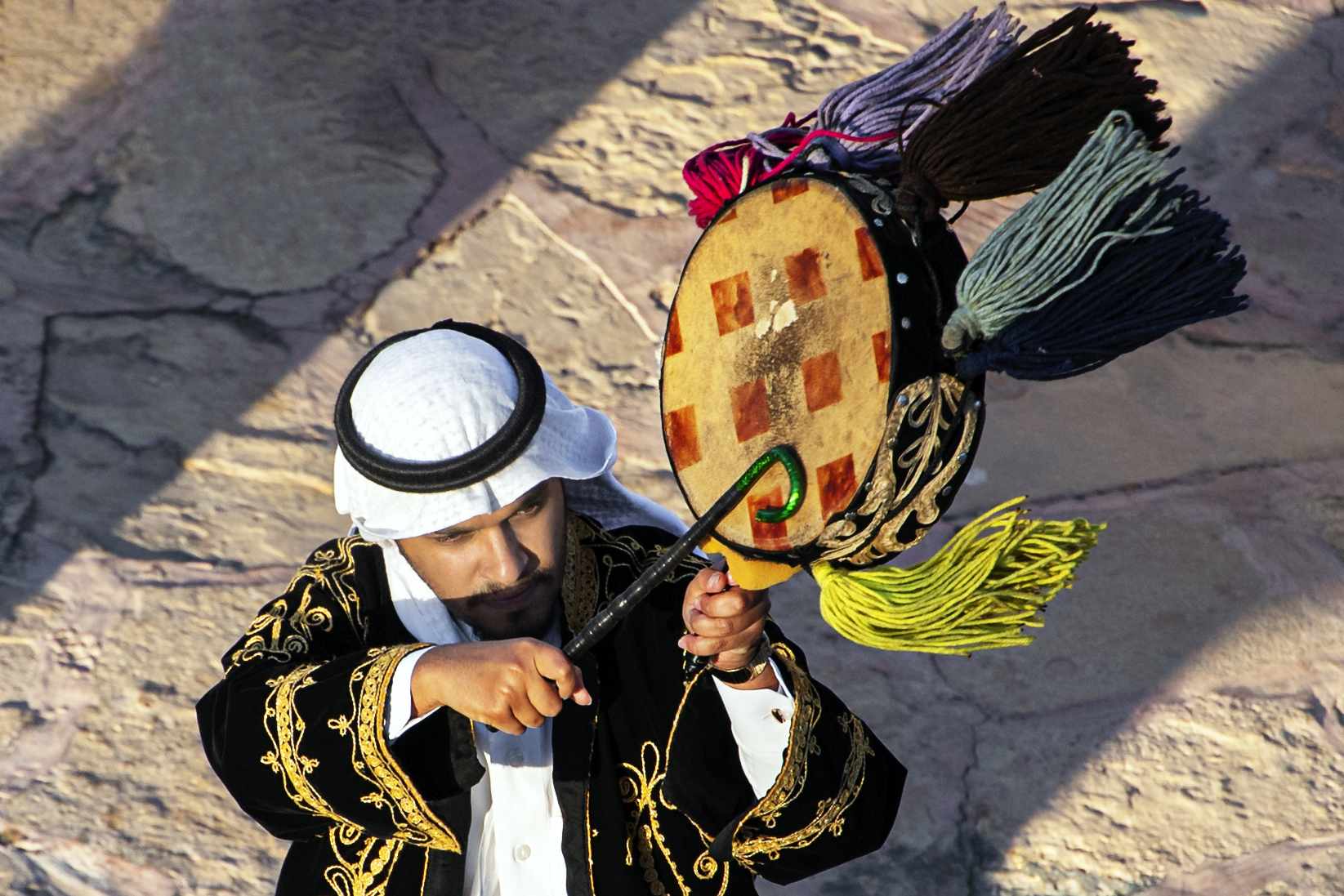
The Saudi Ardha
